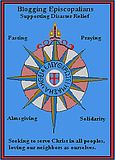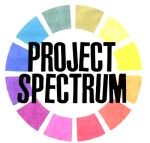Imagining the Messiah Quiet Day Meditations pt. 3
Continuing on with the final meditation from last week's Quiet Day, despite another "Whoops" moment last night when I accidentally disabled my internet connection while trying to network with husband--and I don't mean that in some metaphorical innuendo kind of way, but in trying to connect our laptops, oh, never mind. Anyway, while writing this I was significantly helped by a lecture I discovered on the Internet originally given at Seattle Pacific University by the one and only N.T. Wright, now Archbishop of Durham, England, which is found here..As before, a poem.
A Better Resurrection (Christina Rossetti)
I have no wit, no words, no tears;
My heart within me like a stone
Is numbed too much for hopes or fears.
Look right, look left, I dwell alone;
I lift mine eyes, but dimmed wiht grief
No everlasting hills I see;
My life is in the falling leaf:
O Jesus, quicken me.
My life is like a faded leaf.
My harvest dwindled to a husk:
Truly my life is void and brief
And tedious in the barren dusk;
My life is like a frozen thing,
No bud nor greenness can I see:
Yet rise it shall--the sap of spring;
O Jesus, rise in me.
My life is like a broken bowl,
A broken bowl that cannot hold
One drop of water for my soul
Or cordial in the searching cold;
Cast in the fire the perished thing;
Melt and remould it, till it be
A royal cup for Him, My King:
O Jesus, drink of me.
Now we come to the 'so what' portion of our time together. So what? What does it matter what kind of Messiah we imagine.
Jesus keeps saying, "the kingdom of God has come near to you." But he's not always very explicit about what that kingdom is like. He keeps using these parables--imaginative stories designed to provoke the reader into a new way of thinking--a change of mind.
The kingdom of God is like a mustard seed, which when sown upon the ground is the smallest of all the seeds on earth, yet when it is sown it grows up and becomes the greatest of all shrubs, and puts forth large branches, so that the birds of the air can make nests in its shade."
And later, "let the little children come to me, do not stop them, for it is to such as these that the kingdom of God belongs. Truly, I tell you, whoever does not receive the kingdom of God as a little child will never enter it."
The small, the weak, those who have no say, those who don't seem to amount to much, those who are at the bottom of the social totem pole--in this is the kingdom of this Messiah. The kingdom of God continually turns our expectations upside down.
When we are baptized, we accept God's invitation to start living into that kingdom here and now.
In what ways do we need to be turned upside down by this Messiah? How might we become partners with the Messiah in this kingdom?
Here are some statistics about those little children here in Oklahoma (readers of this blog will have seen them before--they are from the Children's Defense Fund Oklahoma site):
A child is abused or neglected every 38 minutes--and we've seen the terrible consequences in the news.
A child in Oklahoma is born into poverty every 49 minutes.
A child in Oklahoma dies before his or her first birthday every 24 hours.
21 percent of our children are poor.
We are 27th in low birthweight babies, 29th in infant mortality, 41st in children who are poor, 45th in per pupil expenditure in oru schools and 47th in percent of babies with mothers who received early prenatal care.
Is this the kingdom of God? Is this the kingdom of a Messiah who came to us as a baby? Who proclaimed good news to the poor?
I suspect God's imagination has a different vision for our lives here.
Poverty of imagination doesn't just mean boycotting the Harry Potter books. Povery of imagination leads to actual poverty.
N.T. Wright gave a speech on Imagination at Seattle Pacific University--he focused on John 20 and 21, on Jesus meeting Mary Magdalene, Thomas, and Peter by the shore of the Lake. Beginning with Mary, who mistakes him for a gardener--no mistake, Wright points out--this is the new creation.
He pointed out that in this new creation that God has imagined for us, each one of them is given a task. Mary's going to tell everyone about the resurrection. Thomas gets to articulate his faith--my Lord and my God--the first one of the disciples to say that. Jesus asks, "Simon, son of John, do you love me? Feed my sheep."
We are called to those same tasks as Mary and Thomas and Peter. Proclaiming and believing and feeding. And those tasks require imagination. They challenge us to be alert and awake to God's call, and then to use our imagination to enter God's imagination.
So I'd ask you to close your eyes and picture your congregation as it gathers. Who's there? Who's not there? Whose voices aren't being heard?
Stnading on the corner outside your church, picture the neighborhood. Imagine your drive home. What do you see? Where might there be new opportunities, new ways of mission you've never imagined before?

























2 Comments:
Emily, thank you so much for sharing the three part meditation. It has given me much to think and IMAGINE about! Not to mention a couple of books to read.
Thanks, Susan, I enjoyed preparing them and have also enjoyed seeing what other people make of them.
Post a Comment
<< Home